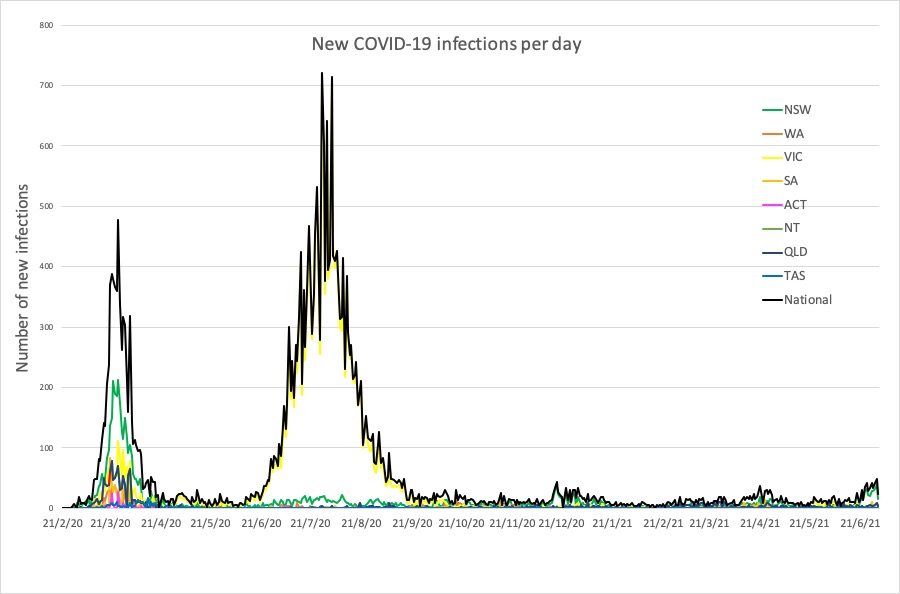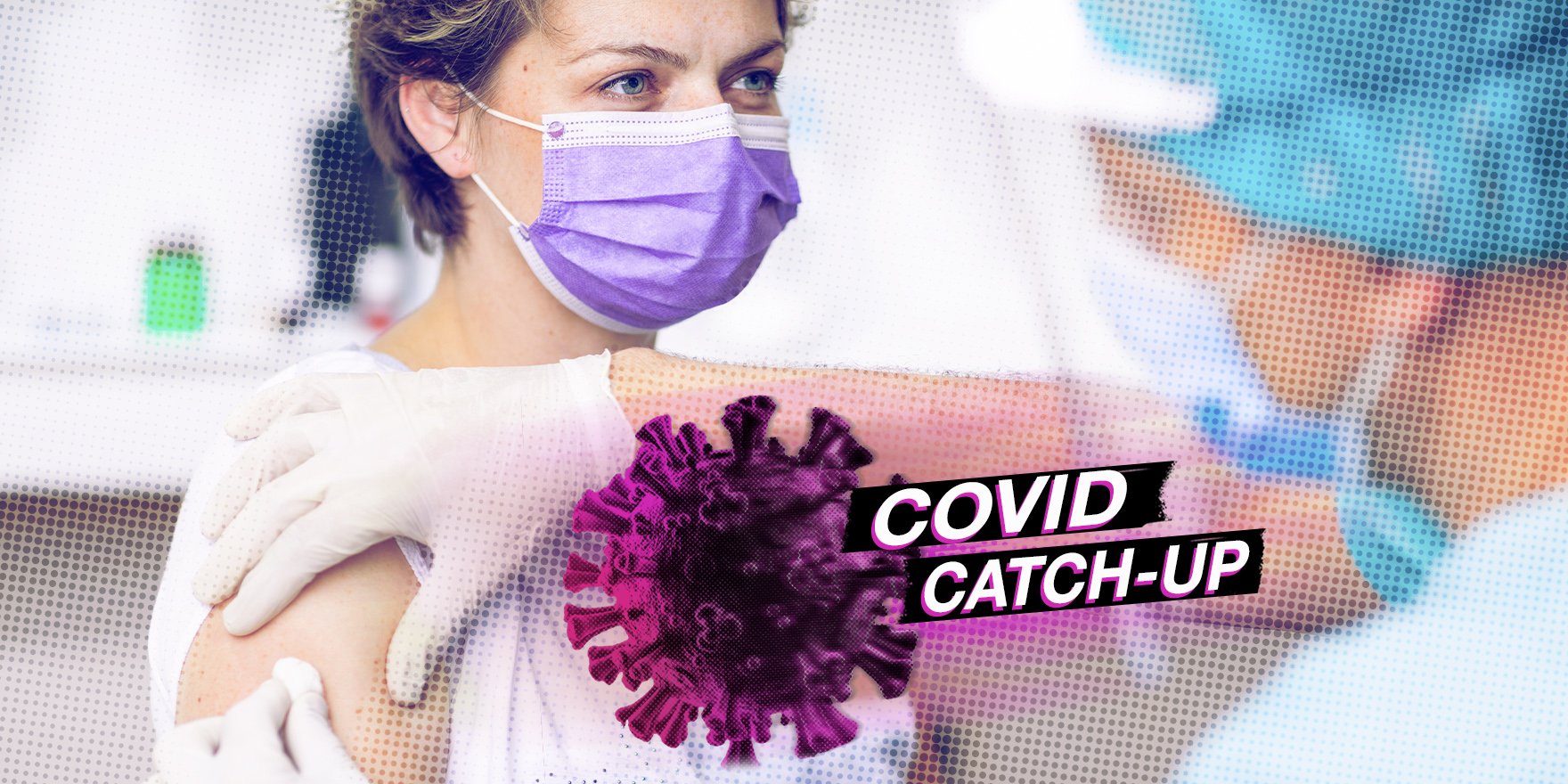And lottery tickets less effective at boosting vaccination rates than simply increasing eligibility.
Welcome to The Medical Republic’s COVID Catch-Up.
It’s the day’s covid-19 news in one convenient post. Email bianca@biancanogrady.com with any tips, comments or feedback.
5 July
- The first case of rare vaccine-linked thrombosis with thrombocytopenia led to 1.8m of bowel being removed.
- Lottery tickets not quite the vaccination incentive they were made out to be.
- As the PM emphasises importance of vaccination, what do the latest stats show about the rollout?
- Latest covid-19 infection numbers and details from around Australia.
Australia’s first case of vaccine-associated thrombosis with thrombocytopenia – a 44-year-old healthcare worker – had to have 1.8 metres of bowel removed after almost complete occlusion of his portal and splenic veins.
According to a clinical report in the Medical Journal of Australia, the man presented eight days after receiving his first dose of the AstraZeneca vaccine with abdominal discomfort, fevers, fatigue and ‘head fogginess’.
Despite no history of exposure to heparin, he was strongly positive for heparin–platelet factor 4 antibodies, and had both low platelets and high D-dimer levels.
He was immediate given high doses of anticoagulants, but the thrombus extended into the superior mesenteric vein and the bowel became ischaemic. Doctors removed 1.8 metres of bowel, and the man remained in hospital for 34 days.
While serious, the vaccine-linked adverse event remains extremely rare, with only 69 cases reported from 4.8 million doses of the AstraZeneca vaccine administered in Australia.
According to data from the Therapeutic Goods Administration, the average time to onset is 12 days, 18 of the 69 cases have been treated in intensive care, and 51 have been fully discharged from hospital.
Lottery tickets as a vaccination incentive may not have made any difference to uptake, according to a study which found that expanding vaccine eligibility actually had a far greater effect on vaccination rates.
A previous study of vaccination rates before and after the introduction of a lottery incentive in the US state of Ohio suggested the offer helped to slow the decline in vaccine uptake in the state.
However a new analysis, published in JAMA, suggests the effect was more the result of a federal change in vaccine policy that allowed those aged 12-15 to get vaccinated with the Pfizer/BioNTech vaccine, which occurred around the same time as the lottery announcement.
As Prime Minister Scott Morrison emphasised the importance of vaccination as Australia’s ticket out of pandemic restrictions and closed borders in Friday’s post-cabinet press conference, barely 9% of Australians had received two doses of a covid vaccine.
According to figures from the federal health department released on Saturday 3 July, the 8.2 million doses of vaccine administered in Australia translated into two-dose vaccine coverage in 10.8% of those aged over 50 years and 18.1% of those aged 70 and over.
Broken down into five-year age increments, full vaccine coverage ranged from 40% of those aged 95 years and older to 1.2% in those aged 16-19. Interestingly, there’s a significant bulge in vaccine coverage among those in their forties, in terms of the percentage of that age range that has been fully vaccinated: 12.1% of those aged 40-44 years and 13.8% of those aged 45-49. In contrast, only 7.4% of those aged 50-54 and 7.6% of those aged 35-39 have been fully vaccinated.
Meanwhile, around 500 general practices will start getting Pfizer vaccine doses for their patients this week, with a significant number of those practices being in rural areas, Deputy Chief Medical Officer Michael Kidd said at a press conference on Sunday.
Kidd also said a further 800 new practices will join the vaccine rollout over the next month, including many Aboriginal Controlled Community Health Organisations.
Infection rates in New South Wales are all over the place, but at least they’re not growing exponentially and a significant percentage of those who have tested positive have been in isolation during their infectious period.
The bad news is five residents of the SummitCare Baulkham Hills aged care facility have now tested positive for covid-19 after a staff member worked while infected. But the good news is four of the five residents are partly or fully vaccinated, although all have been transferred to hospital as a precaution.
Queensland health authorities are contact tracing in Eumundi, Noosaville and Noosa Heads after more locally acquired cases were reported over the weekend.
Here are the latest covid-19 infection numbers from around Australia to 9pm Sunday, according to the Federal Department of Health. There is a discrepancy between these numbers and those from NSW Health over the same period – which reported 36 new cases – which we are investigating.
National – 30,757 with 910 deaths
ACT – 124 (0)
NSW – 5942 (16)
NT – 185 (0)
QLD – 1716 (3)
SA – 812 (2)
TAS – 234 (0)
VIC – 20,714 (1)
WA – 1030 (1)



